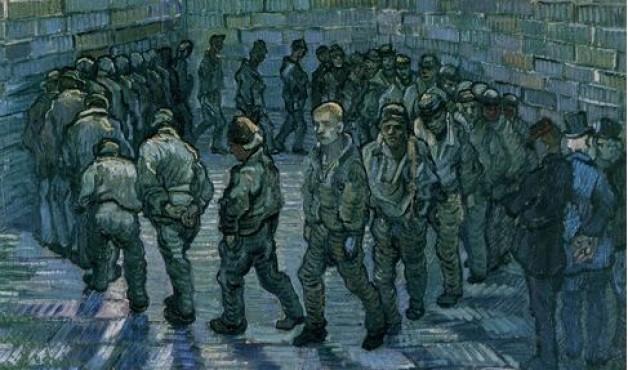Every break I, like many of the students at the House of Studies, like to catch up on a bit of leisure reading. This break I decided to read The Man in the Iron Mask by Alexander Dumas, a tale of the mysterious and infamous prisoner held in the Bastille who was purportedly Louis XIV’s brother.
In his novel, Dumas describes Philippe’s (the prisoner) detainment with his characteristic detail: the walls as thick as a man; the high windows that only let in a ray of light during the hours of sunrise and sunset; the stagnant air that smells of mold; the constant threat of being strangled. None of these things are able to dominate the spirit of the prisoner, however. In fact, upon his first meeting with Aramis, the bishop of Vannes (and retired musketeer), Philippe frustrates each of Aramis’s attempts to kindle a desire for freedom in him. For Philippe, incarceration is made tolerable because of two things: his reliance on prayer, and the resignation of his will to the imprisonment. In his own mind he is free because he can enjoy the magnificent view of Paris and the Cathedral of Notre Dame (unlike common citizens), he can enjoy the summer breeze coming from the Seine, and he has his meals provided for. He has attached his will to these things in such a way that they are desirable to him. Not even when he learns that he has been imprisoned for a decade simply because he is the king’s twin brother is he dominated by anger or hatred for his lot in life.
When Aramis enacts his plan to free Philippe and replace the king with his twin brother, he learns the power of the human will founded upon a life of prayer. He frees Philippe with a craftily forged order of release, brings him to a remote section of Paris, and explains his plan to depose the king. But Philippe surprises him with his hesitancy and initial refusal to go along with Aramis’s plan. Despite the fact that Aramis has planned the deposition of the despotic king for years, despite the fact that he has thought of every possible contingency, the success of his plan remains at the mercy of Philippe; Aramis does not have total control. Aramis assumed that Philippe would go along with his plan, or that he could convince him to agree to it. But Phillipe’s refusal arrests his entire plan—and inwardly Aramis panics, perhaps for the first time in his life.
Philippe, for his part, doesn’t quite know what to do; thus, he does what he had learned to do in the Bastille: he turns to God in prayer. He does so spontaneously, and he almost instantly has clarity on the decision, which I attribute to the fact that he had learned an important lesson in his ten years in the Bastille: abandonment to divine providence. In the end, after his prayer he is given the direction and strength to follow Aramis to work for the common good, which also teaches Aramis—and us—that man’s best laid plans cannot replace the providence and guidance of God.
✠
Image: Vincent Van Gogh, Prisoners Exercising







